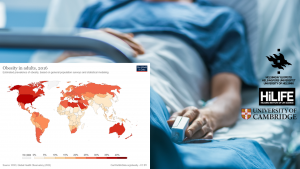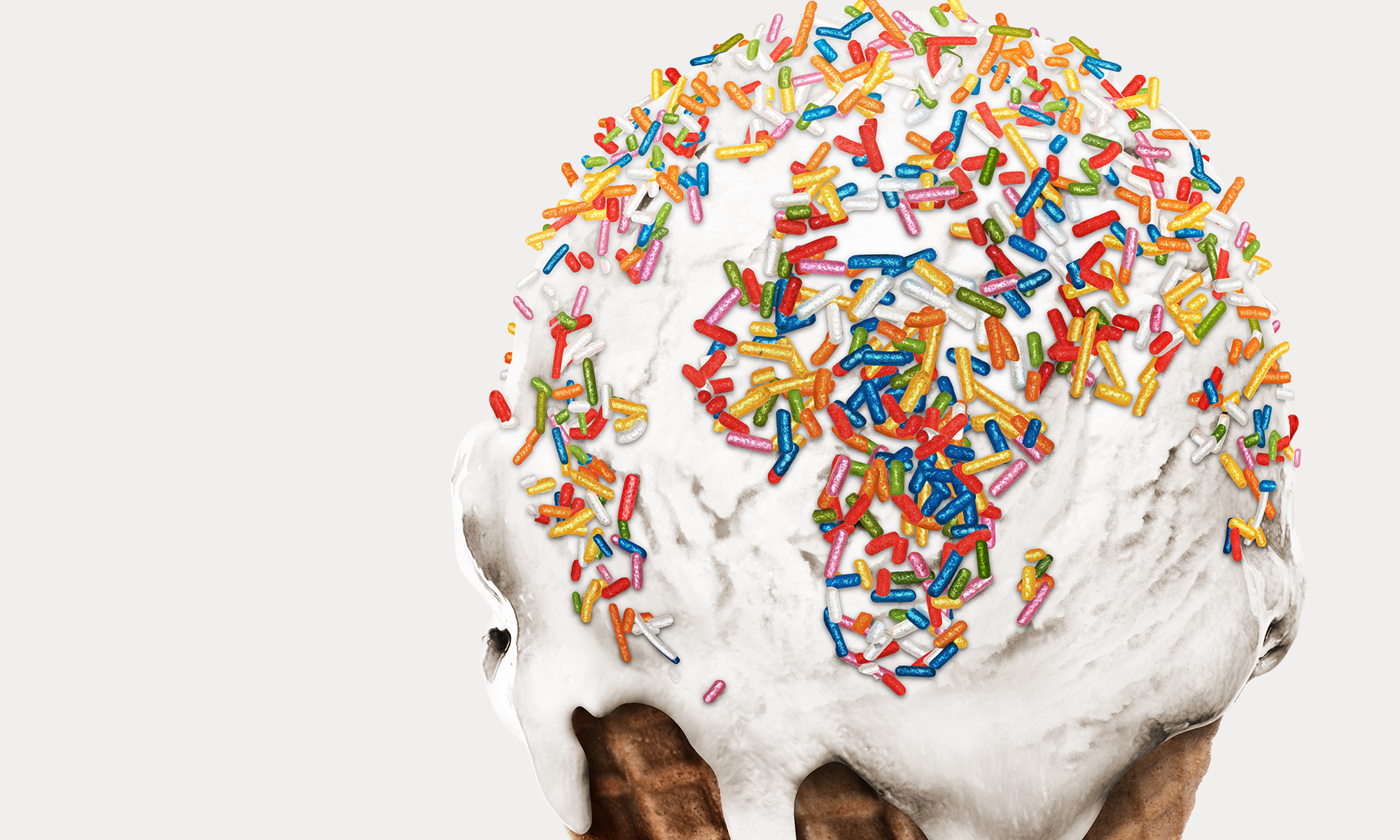
Suvi Laitinen, 21, researcher and MD-PhD-student left for a research exchange right after completing her second year of medical school and returned to Finland to start her third year in mid-August. Her grant was awarded exceptionally for 2.5 months, taking into consideration the attendance requirements of her medical school. She completed an international exchange in Dr Florian Merkle’s lab at the Institute of Metabolic Science (IMS) at the University of Cambridge. Her project Obesity Curiosity is focused on understanding the relationship between hunger, satiety and obesity (Project introduction video here: https://www.youtube.com/watch?v=C0dseCj4a9g )
Laitinen worked in biosafety level 2 stem cell culture, learning Dr Merkle’s lab neuron differentiation protocol and testing her differentiation protocol for organoids built on existing protocols. Dr Merkle has pioneered in differentiating human induced pluripotent stem cell-derived functional human neurons. “That work has been a game changer – thanks to his work efficient production and the study of the live human brain is possible for hypothalamic key neurons – and his team has continued the work towards applications with stunning results!”, Laitinen describes with visible enthusiasm.
She praises the supervision she received: “In addition to innovative and supportive supervision from Dr Merkle, I had the honour to learn from the brilliant postdoctoral researcher Dr Cortina Chen. Her precision, efficiency and ability to handle multiple projects at the same time is astonishing. Moreover, she welcomed me and my questions warmly to her busy schedule, took time to teach me and helped further develop the methodology for my project. I am very grateful for Dr Chen – not only was she a fabulous immediate supervisor with great leadership skills, she made me feel supported and well on track every day – and also a kind and relaxed person from whom I learnt immensely. It was wonderful to work with her!”
Results from Laitinen’s work were living organoids that then were collected as samples that are the base for her PhD project. “I am immensely grateful to Dr Merkle for warmly welcoming me into his lab and for his ongoing advice and support which has been highly impactful for my project. I have now an idea of how to continue with my research when I return to Finland. The exchange has been a wonderful experience and will stay with me for all my life!”
Laitinen reminds all aspiring young researchers to pay attention to the institute as well when thinking about where to apply: “I was so happy to have both amazing lab and institute. IMS is an amazing place – brilliant, passionate people all working in the same field in the same laboratories. The institute is indeed one of the hot spots of obesity research, and they have amazing internal and external speakers with a full auditorium almost every week. The institute also excelled beyond the academic measures, everyone was welcoming and helpful. Huge thanks to all PhD and Masters students I met, you are amazing and your great team spirit is something I am gonna miss. It was a huge privilege to be part of the community for a short period”.
During her stay, she also had the opportunity to build connections with and seek advice from the other lead scientists in the field. “I want to express my deep gratitude to Dr Madeline Lanchaster, Professor Sir Shankar Balasubramanian and Professor Sir David Klenerman for taking time from their undoubtedly very busy schedule to meet me and answer my questions”.
Dr Madeline Lanchaster pioneered by publishing first brain organoid protocol in 2014 and now leads a lab in the MRC Laboratory of Molecular Biology on brain development in cerebral organoids. Laitinen visited her lab and had a deeply impactful discussion on different approaches in brain modelling. “Dr Lanchaster’s insight into deciding between gardening and engineering approach for brain model composition was eye-opening for me and I believe her advice will benefit the project for a long time”.
Professor Sir Shankar Balasubramanian and Professor Sir David Klenerman won the Millenium Prize in 2020 for Next Generation DNA Sequencing, awarded by the Technology Academy of Finland (TAF), which also awarded Laitinen and Maula Millenium Youth Prize 2019 for their project proposing a solution that could theoretically slow down Alzheimer’s disease.
Professor Balasubramanian leads world-class research on unconventional DNA complexes and the start-up branched from their research is currently investigating those as a treatment for human diseases. “Professor Balasubramanian had amazingly organized an exciting half a day for me to meet both his lab members in Cancer Research UK (CRUK) and at the Department of Chemistry and I met so many exciting people and changed ideas. His advice for me on how to build a research program in a smaller country like Finland and his supportive approach was incredibly helpful!”
Professor Sir David Klenerman leads a research program on imaging single molecules with complex microscopy techniques. In his lab, Laitinen saw first-hand imaging of single protein aggregates associated with neurodegenerative diseases. “I can only try to describe the awe I experienced looking at the microscope capable (with physics I am not able to explain) of visualizing individual protein complexes. Those are on a nanometer scale and it is wonderful that they have stretched the capability of technology to this level! Professor Klenerman also gave useful advice on how to bounce back after mistakes and unsuccessful events that are inevitable in science despite our best efforts especially when trying to do something completely new. Most of the time things don’t work out the way we expect them to just because they are so new”.
Laitinen describes how the research exchange in an international lab was a formative experience for her. “Traveling to Cambridge enabled me to take my project to the next level and strengthen our scientific collaboration with Dr Merkle’s lab. I learnt about exciting research done in the lab and IMS as well as other labs that welcomed me to visit. Joining one of the forefronts of my research field has been incredible and I cannot emphasise enough how impactful meeting all these brilliant people from all career stages joined in Cambridge from around the with the common goal of the best possible science has been”.
Laitinen points out how crucial the support of Helsinki Institute of Life Science (HiLIFE), an independent life sciences research institute within University of Helsinki was for her experience. “HiLIFE supported me with my ambitious idea to explore something that nobody has investigated this way before. In the interview part of the multi-step application process – which by the way I think is an amazing investment of theirs to teach young scientists how to present their ideas and take that challenge of answering to a whole board of experts – I was asked if I could acquire another funding for the summer exchange. As I told them, I am fighting with all my effort for my project, still without preliminary data and restricted funding opportunities for this early career stage, I don’t think it would have been possible. HiLIFE Undergraduate Student Research trainee Scholarship is a unique opportunity and for me, it was impactful beyond measure. I think the exchange set me well for the coming years of PhD research and given me skills that I will be able to use long in my efforts to build my research program in Finland. I humbly thank you for this opportunity”.
